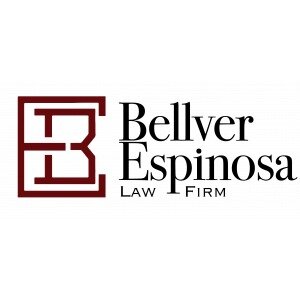Best Tax Lawyers in San Juan
Share your needs with us, get contacted by law firms.
Free. Takes 2 min.
List of the best lawyers in San Juan, Puerto Rico
About Tax Law in San Juan, Puerto Rico
Tax law in San Juan, Puerto Rico, encompasses a unique blend of both federal and local tax regulations due to its status as a U.S. territory. Puerto Rican residents are subject to local income taxes, which differ significantly from U.S. federal income tax, as residents are generally exempt from paying U.S. federal income taxes on income sourced within Puerto Rico. Additionally, there are various local tax obligations such as sales and use tax, property tax, and excise taxes. Understanding these nuanced regulations is critical for compliance and optimization of tax liabilities.
Why You May Need a Lawyer
The complexity of tax systems in San Juan, Puerto Rico, often necessitates legal assistance, particularly in the following scenarios:
- Compliance with local and U.S. tax laws and regulations to avoid penalties.
- Seeking tax incentives or exemptions available under Acts such as Act 20 and Act 22 for individuals and businesses.
- Navigating audits or disputes with the Puerto Rico Department of Treasury or the IRS.
- Structuring business entities for tax efficiency.
- Handling complex estate and gift tax issues unique to Puerto Rico.
- Resolving overdue tax liabilities or negotiating payment plans.
Local Laws Overview
Key aspects of local tax laws in San Juan that are particularly relevant include:
- Income Tax: Residents are subject to Puerto Rico income taxes, which have progressive rates up to 33%.
- Act 20 and Act 22: These acts offer tax incentives to attract businesses and high-net-worth individuals to the island.
- Sales and Use Tax: Commonly referred to as "IVU," it is currently set at 11.5%, combining both state and municipal taxes.
- Property Tax: Levied by municipalities, based on the assessed value of the property.
- Excise Taxes: Duties on goods imported into Puerto Rico, affecting various industries including manufacturing and retail.
Frequently Asked Questions
What are the tax rates in Puerto Rico?
Income tax rates in Puerto Rico range from 0% to 33%, with additional fixed amounts depending on each bracket.
Do I have to pay U.S. federal taxes if I live in Puerto Rico?
Generally, Puerto Rican residents do not pay U.S. federal income tax on income sourced from within Puerto Rico.
What is the IVU tax?
The IVU is a combined state and municipal sales and use tax, currently set at 11.5%.
How can I qualify for Act 20 or Act 22 exemptions?
These incentives require relocation to Puerto Rico and meeting specific business activity requirements or residency criteria.
Are there property taxes in Puerto Rico?
Yes, property taxes are assessed by municipalities based on the property's value, with rates varying by location.
What is the procedure if I receive a tax audit notice?
Consulting with a tax lawyer or accountant is advised to prepare and respond appropriately to any audit inquiries.
How often do tax laws change in Puerto Rico?
Tax laws can change frequently, with significant updates often due to economic reforms or legislation.
Can businesses benefit from any specific tax incentives?
Yes, through programs like Act 20 for export services and other local business incentives designed to stimulate economic growth.
What are some common tax penalties in Puerto Rico?
Common penalties include those for underpayment of taxes, failure to file returns, or failure to report correct information.
How do I find the right tax attorney in San Juan?
Look for attorneys specializing in Puerto Rican tax law, with experience in both local and U.S. federal systems.
Additional Resources
Here are some resources and organizations that can be beneficial for those seeking further information:
- Puerto Rico Department of Treasury: For official guidelines and updates on tax laws.
- IRS: For information on federal tax obligations and filings.
- Puerto Rico CPA Society: Offers resources and professional support for accounting and tax professionals.
- Local law schools or legal aid organizations: They may provide educational resources and occasionally offer free or low-cost legal clinics.
Next Steps
If you need legal assistance in tax matters in San Juan, Puerto Rico, consider the following steps:
- Identify your specific tax issue or requirement to determine the type of legal expertise needed.
- Research and reach out to local tax attorneys who specialize in Puerto Rico and U.S. tax law.
- Prepare all relevant documentation and information before your consultation.
- Discuss your situation in detail with the attorney to explore your options and potential strategies.
- Follow through with the recommended actions to ensure compliance and address any legal challenges.
Lawzana helps you find the best lawyers and law firms in San Juan through a curated and pre-screened list of qualified legal professionals. Our platform offers rankings and detailed profiles of attorneys and law firms, allowing you to compare based on practice areas, including Tax, experience, and client feedback.
Each profile includes a description of the firm's areas of practice, client reviews, team members and partners, year of establishment, spoken languages, office locations, contact information, social media presence, and any published articles or resources. Most firms on our platform speak English and are experienced in both local and international legal matters.
Get a quote from top-rated law firms in San Juan, Puerto Rico — quickly, securely, and without unnecessary hassle.
Disclaimer:
The information provided on this page is for general informational purposes only and does not constitute legal advice. While we strive to ensure the accuracy and relevance of the content, legal information may change over time, and interpretations of the law can vary. You should always consult with a qualified legal professional for advice specific to your situation.
We disclaim all liability for actions taken or not taken based on the content of this page. If you believe any information is incorrect or outdated, please contact us, and we will review and update it where appropriate.












